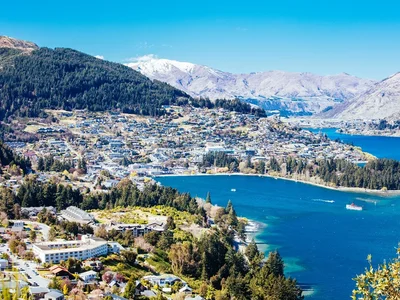
'We're losing smart people'. What's being discussed in New Zealand ahead of the general election?
New Zealand has seen a record influx of immigrants in the last year. This has both positive and negative consequences.
According to the national statistics office, 110,000 immigrants arrived in the country in the previous year, a true record. This surge in foreign arrivals follows a period of pandemic when more people left New Zealand than arrived.
The largest number of immigrants came from India, followed by the Philippines and China. The total number of immigrants for the year reached an impressive 225,000. While the number of New Zealanders who left the country is also approaching a record of 115,000.
Positive aspects of immigration growth
The rise in immigration has proved to be a real lifesaver for employers in New Zealand, on the one hand. Last year, they faced serious difficulties in finding skilled employees. Thus, the surge in immigration has made it possible to fill vacant positions and strengthen the country's economy.
According to Jarrod Kerr, chief economist at Kiwibank, the surge in prices, which can also be seen, is likely to reflect pent-up demand built up during the pandemic. This means that many immigrants who have arrived in the country are ready to start a new life and invest their savings in real estate and consumer goods.
Challenges associated with increased immigration
However, despite the pros, there are challenges associated with increased immigration. It is important to note that migrants will require a significant amount of resources, including housing. As Kerr points out, the housing shortage remains one of the most significant problems in New Zealand. With such a massive influx of population, this becomes an even more pressing issue.
New Zealand's unemployment rate remains at a relatively low 3.6%. This suggests that the country has a stable labor market.
Nevertheless, experts talk about the problem of the outflow of New Zealanders themselves, leaving the country in search of better conditions in Australia. The fact is that, by mutual agreement, New Zealanders and Australians can freely live and work in either country. This factor is a cause for concern, as the move of trained and intelligent people can negatively affect the future of New Zealand.
“Unfortunately, we are losing trained, intelligent people,” Kerr said. “That's what we're concerned about.”
The figures were released three days before New Zealand's general election, although immigration was not a major campaign issue. Both major parties emphasized rising costs of living, lower taxes, and crime.
Author
I am responsible for editorial work. I write expert interviews and guides.





















